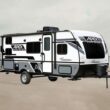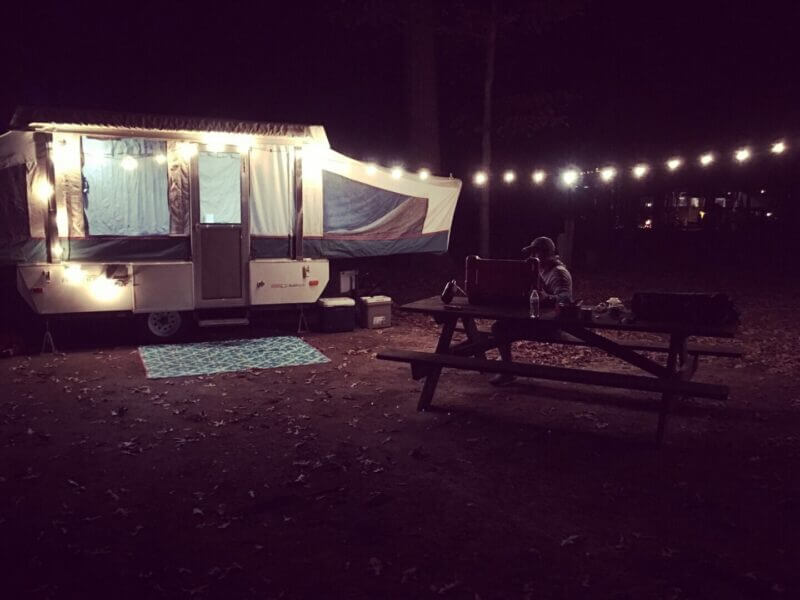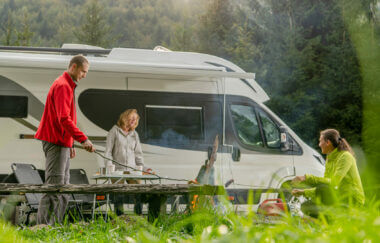Table of Contents Show
There are so many different classes and types of RVs; it’s enough to make anyone’s head spin. So what exactly is a pop-up camper? Is it a travel trailer? Is it a tent? Or something else?
Let’s dive into the world of pop-up campers.
What Is a Pop-Up Camper?
A pop-up camper is a small, folded camper that pops up into a larger camper when parked.
They come in many different types: a tent trailer, A-frame camper, hard-sided pop-up, Hi-Lo, and more. Let’s take a look at the details.
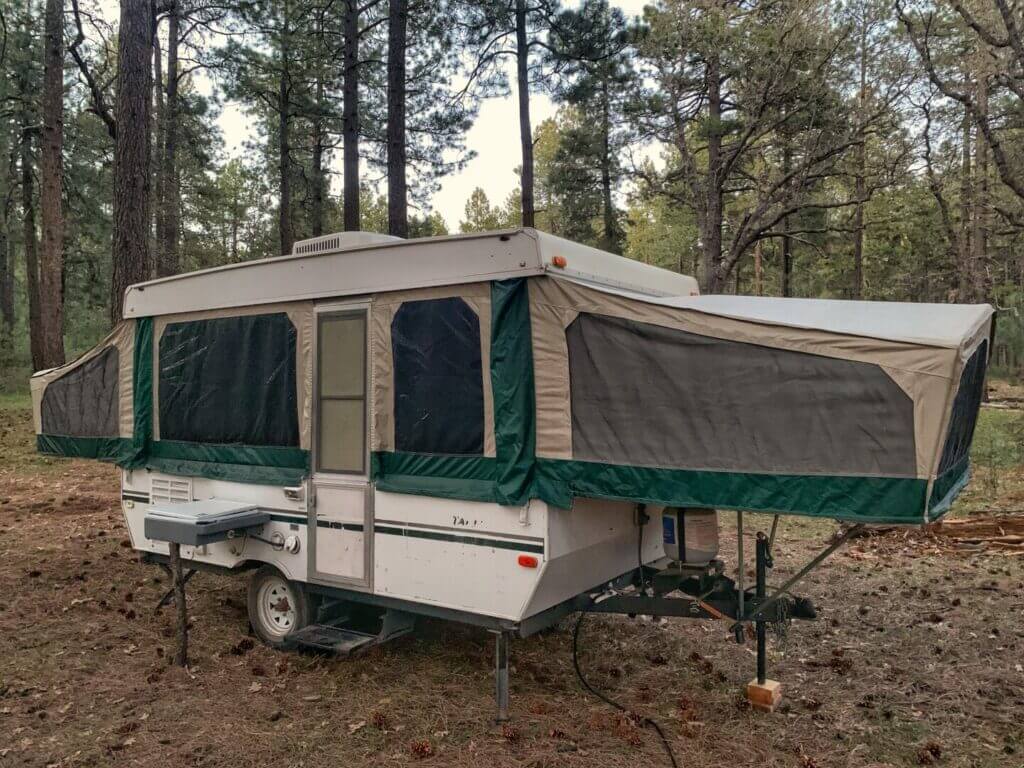
How Much Is a Pop-Up Camper?
You may find pop-up campers as some of the lowest-priced campers on the market. You can find new ones for anywhere from $9,000 up to $50,000 for overlanding pop-ups or Hi-Lo camper trailers.
How Much Does a Pop-Up Camper Weigh?
The weight of these versatile campers varies depending on what kind you get, but the average weight of a pop-up camper is around 2,000 lbs.
Passenger vehicles, even cars, can pull smaller ones.
However, you can find tent trailers that weigh as low as 900 lbs. If you want to get even smaller, pop-up tent campers made for motorcycles can weigh as little as 300-500 lbs.
The heaviest hard-sided pop-up campers like the TrailManor 3124 Series 3124KB can weigh over 4,000 lbs fully loaded.
What Kind of Car Do You Need for a Pop-Up Camper?
You can match a car to a pop-up camper by checking the towing capacity of your vehicle and finding a pop-up camper that weighs less.
For example, a Toyota Camry can tow between 900 and 1,100 lbs, meaning it can pull a small pop-up.
You can use just about any vehicle to pull a pop-up camper, just match your vehicle’s capacity with the right trailer and weight.
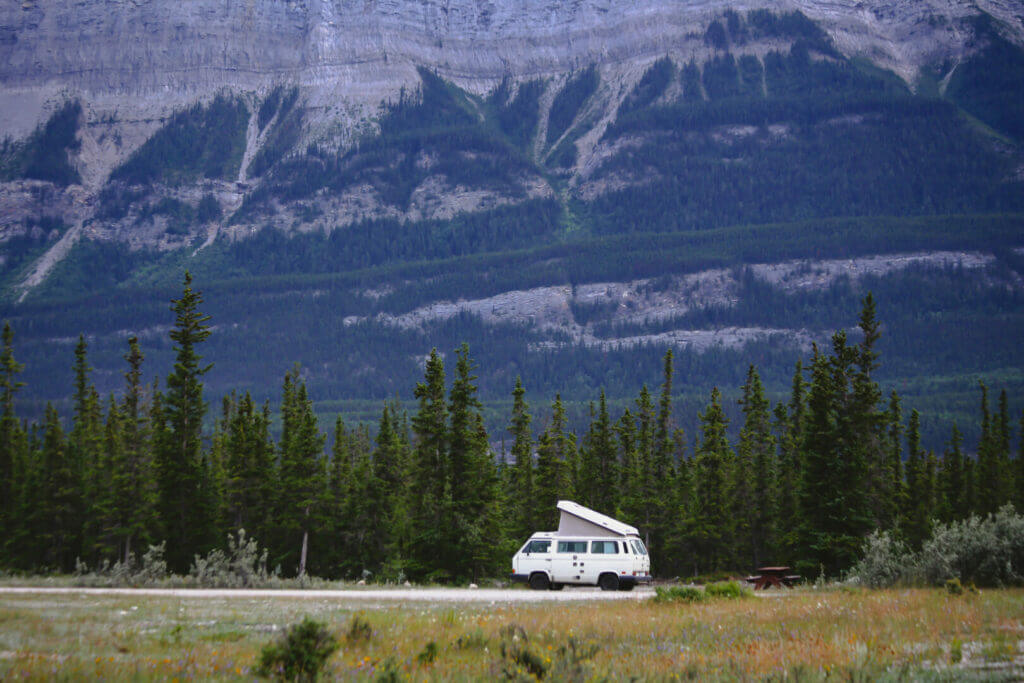
Do Pop-Up Campers Have Air Conditioners?
Some pop-up campers do come with air conditioners. For example, you can find roof-mounted pop-up camper air conditioners and some installed in the side on the lower half.
You may have trouble regulating the temperature in a canvas-sided pop-up camper. If your pop-up camper doesn’t have an air conditioner, you can get a portable one to keep you more comfortable.
Types of Pop-Up Campers
As we mentioned, you can find many different pop-up campers, from hard-sided to A-frame. Let’s take a closer look!
Tent Trailers
Tent trailers expand with canvas or tent sides. Tent trailers can range from traditional pop-up campers like the Rockwood Tent with a hard base and top with extendable canvas sides, or they can be made entirely out of tent material like the SylvanSport GO.
A-Frame Campers
A-Frame pop-up campers have hard sides and fold down into a square or rectangular base but expand into an A-frame shape. A-Frame campers can reach as high as 9 to 12 feet at the peak of the roof. These come in many different sizes, and some have pop-out tent areas like the Aliner Ranger 12.
Hard-Sided Pop-Up Campers
Hard-sided pop-up campers work with a hydraulic lift system. Some popular brands include Hi-Lo and TrailManor.
Hard-sided campers like TrailManor extend up and out to add even more space inside the camper. It also provides more insulation and protection from elements and wildlife than a tent trailer.
Pro Tip: Pop-up campers still feel a bit too big for your travel style? Check out The Best Truck Bed Tents instead!
Pros of Pop-Up Campers
You’ll find so many pros of pop-up campers. Let’s take a look at some advantages!
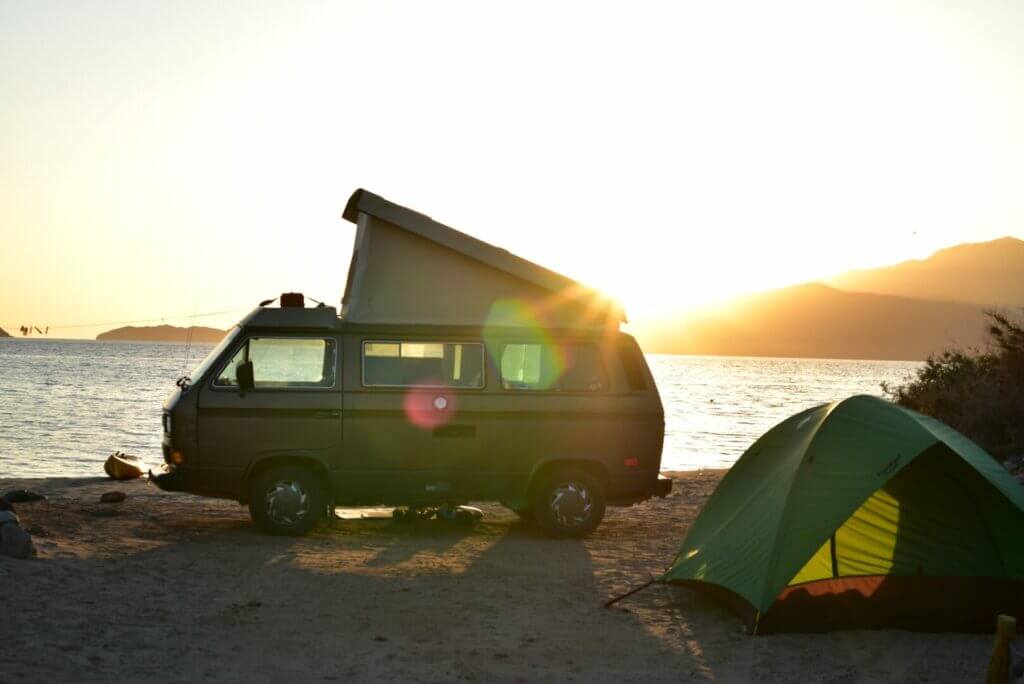
Lightweight
You can pull these lightweight campers with a car. You can choose from many different styles, models, and weights. That means no matter what you drive, you can probably find a pop-up camper to tow.
Easy to Tow
Since these campers fold down into half their height or less, you can tow them easily. You can still see out your back window and rearview mirror! Plus, they’re not very long either.
Great Intro to RVing
Whether you want to upgrade from tent camping or simply want an RV that you can easily store in your garage, pop-up campers provide a great introduction to RV life. These small campers help you get used to the idea of towing an RV while you learn how to set it up at camp, take it down, and more.
Pop-Up Camper Cons
Every good thing has downsides, including pop-up campers! So here are the main downsides to these cute little campers.
Small Space
Of course, pop-up campers don’t have much space. Even those that expand outwards, like the TrailManor, have a much smaller size than other RVs or travel trailers.
Can’t Store Much
Because pop-up campers fold down, don’t expect to bring much along. You might fit a lot of stuff into your trailer when you set it up, but you’ll have to unload most of it when it’s time to fold it back down.
Difficult to Regulate Temperature
You’ll have difficulty regulating the temperature in a pop-up camper, especially those with canvas or tent sides. Even hard-sided pop-up campers have more drafts than regular camping trailers because of all the seams and moving parts.
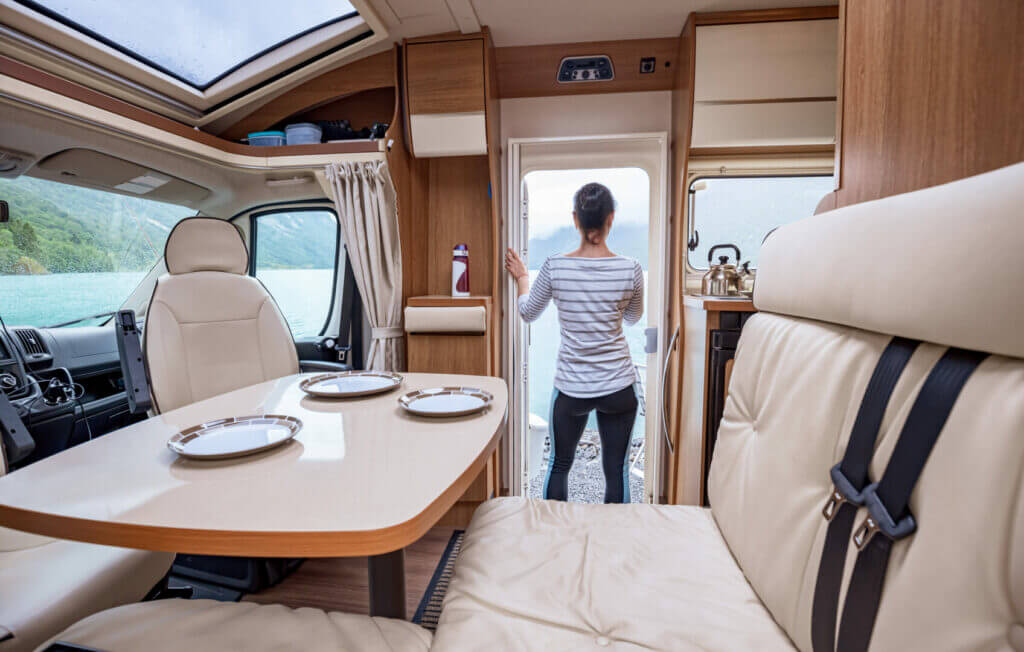
Can You Live in a Pop-Up Camper Year-Round?
Yes, you can live in a pop-up camper year-round. But would you want to? Pop-up campers can be a lot of work if you move often, and you can’t bring much with you.
The lack of storage combined with the fluctuation of temperature and the work of setting up and tearing down might deter you, but you can do it!
Pro Tip: Ready to see some pop up camper options? You have to check out the 10 Best Pop Up Campers With Bathrooms next!
Are Pop-Up Campers Worth It?
If you want to upgrade from tent camping, we think you should give pop-up campers a try. They’re lightweight, easy to tow, inexpensive, and so much fun!

